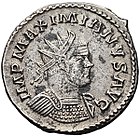
Back مرتهن Arabic Ламбард BE Лямбард BE-X-OLD Заложна къща Bulgarian Casa d'empenyorament Catalan Zastavárna Czech Pantelåner Danish Pfandleiher German Ενεχυροδανειστήριο Greek Lombardejo EO
This article has multiple issues. Please help improve it or discuss these issues on the talk page. (Learn how and when to remove these template messages)
|
| Personal finance |
|---|
 |
| Credit · Debt |
| Employment contract |
| Retirement |
| Personal budget and investment |
| See also |



A pawnbroker is an individual or business (pawnshop or pawn shop) that offers secured loans to people, with items of personal property used as collateral. The items having been pawned to the broker are themselves called pledges or pawns, or simply the collateral. While many items can be pawned, pawnshops typically accept jewelry, musical instruments, home audio equipment, computers, video game systems, coins, gold, silver, televisions, cameras, power tools, firearms, and other relatively valuable items as collateral.
If an item is pawned for a loan (colloquially "hocked" or "popped"[1]), within a certain contractual period of time the pawner may redeem it for the amount of the loan plus some agreed-upon amount for interest. In the United States the amount of time, and rate of interest, is governed by law and by the state commerce department policies. They have the same license as a bank, which is highly regulated. If the loan is not paid (or extended, if applicable) within the time period, the pawned item will be offered for sale to other customers by the pawnbroker. Unlike other lenders, the pawnbroker does not report the defaulted loan on the customer's credit report, since the pawnbroker has physical possession of the item and may recoup the loan value through outright sale of the item. The pawnbroker also sells items that have been sold outright to them by customers. Some pawnshops are willing to trade items in their shop for items brought to them by customers.
- ^ "pop". Oxford English Dictionary (Online ed.). Oxford University Press. (Subscription or participating institution membership required.)